As Tears Go By (1988)
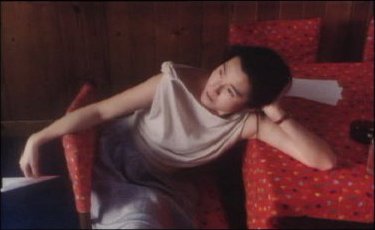 |
WKW’s debut as a director is a take on the gangster genre, but facing away from the 1980’s HK fascination with cops and robbers. Instead, it is a street-level tale of the nihilism of existence into which Triads Andy Lau and his ‘little brother’ Jacky Cheung find themselves. WKW shot HK in a new and gritty way (no Stanley/Aberdeen mansions here), together with a certain technical style, which attracted a lot of attention and brought the film success in HK, critically and commercially.
But what he carries most into his other movies is the romance, here between Maggie Cheung and Andy, and a sense of emotion. There is a lot in Tears which WKW has since left behind - issues of social pride and status, duty and honor (although WKW is more ironic than misty-eyed about this), as well as a storytelling style which has more narrative coherence than inventiveness. The result is that, without knowing, you might not think that this was a WKW film. See for yourself. A good film, traditional and less emotive than later WKW efforts, but worth a watch. Remember: as director, this is where it started for WKW.
Days Of Being Wild (1990)
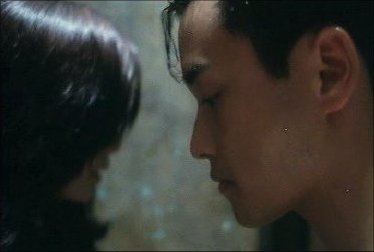 |
Is there a minute in your life that you’ll remember until your death? WKW charts the lives of a group of people in a remarkably under-populated HK, 1960 all centred around a cool but selfish youth played by Leslie Cheung. Between breaking hearts he is on a mission to find his mother, a mission which seems to justify all the contempt he shows the world...
Want more? Well, let’s just add that this was the first film where WKW and collaborator/editor/production designer William Chang were joined by cinematographer Chris Doyle. From this mix was born a style which was concerned less and less with narrative coherence, and more and more with mood and empathy. A sense of solipsism crossed with painful longing brings home how WKW would bring emotion on to the screen in future. A landmark in HK cinema, this is a period drama that is ahead of its time. It didn’t do well commercially, but that didn’t faze WKW. His later films have more inventiveness as well as a greater sense of epithany, but that comes with progress. In any case, this is a classic which should be seen.
Ashes Of Time (1994)
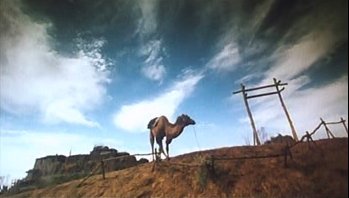 |
WKW takes on the characters and arcana of a wu xia classic, and creates a grand cinematic expression of artistic possibility. This is the film which features just about everyone who could pull a crowd in HK (Leslie Cheung, an uncredited Maggie Cheung, both Tony Leungs, Brigitte Lin... need I go on?), all thrust into some timeless desert in what is almost an anti-story - a story not about what happens, rather about what doesn’t happen, what didn’t happen. The backbone consists of two central characters already immortalised as demi-gods in Chinese literature - Ouyang Feng and Huang Yaoshi - and the various characters who come by them.
Though the plot might not sound too gripping, WKW achieves some kind of incredible emotional nexus felt by those who dig this film, in a way that defies explanation. There is not just technical brilliance, but the presence of a feeling of incredible empathy. Okay, a few martial arts fans were disappointed, but this is an incredible piece of cinema that any WKW fan must see. WKW and his collaborators removed the restraints and gave this film their all - something felt by their backers as the production rolled through years and bank accounts. Don’t worry if you don’t think you get it at first; WKW allows you to feel things before being given reasons why - just watch the film a few more times and feel. This movie changed my outlook on cinema: if you ever become tired and believe cinema has run out of possibilities, give yourself hope and watch this film.
Chungking Express (1994)
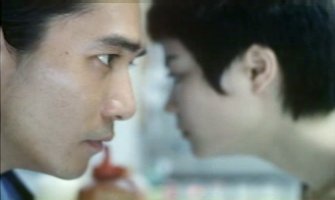 |
Ashes Of Time took so much, well, time that WKW started his next film when Ashes was still in post-production (where he usually decides what his film is actually going to be about). This time, things were going to be different. He had a couple of big, established stars who had worked with him on Ashes (Brigitte Lin and Tony Leung), as well as a couple of fresh popstar-types (Faye Wong and Takeshi Kaneshiro). And practically no money. So, breaking with his own habit of shooting and reshooting for aeons, Chungking Express was shot in about three weeks, hitting cinemas about a couple of months later to become a cult hit.
In Chungking we find ourselves back in modern HK - and what a HK indeed. The stories involve two cops, with a bare minimum of actual policing, both coming out of relationships and facing new futures. Add to this Faye as a fast food caterer with a penchant for (California) dreamin’, and Brigitte as a lone wolf, living-on-the-edge drug smuggler, and you have one neon-blurred, gloriously energetic film. Of course, WKW manages to inject the uplifting force of life into this film without sacrificng any of its deeper reflections - Chungking is every bit as poetic as Ashes, with some gloriously daffy conceits that really take the viewer by surprise. Ignore the people who find the film too precious and vulnerable - this is a strength: WKW is a filmmaker, not a wall-builder. If you want to, you can analyse (quite often validly) to your heart’s content, but then again this movie can (perhaps even best) be enjoyed without any analysis at all. WKW’s maturing skills allow this film to be both fun and profound. Just ask yourself if any other filmmaker can pull you out of your seat and get you caught up in such a whirlwind of feeling and energy.
Fallen Angels (1995)
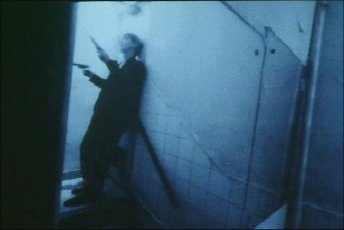 |
A kind of psuedo-sequel to Chungking Express, but far more than just bits that WKW didn’t get around to putting into Chungking. Again, we follow two stories, this time of a hitman (Leon Lai) and his agent (Michelle Reis), and of a mute youth (Takeshi Kaneshiro). From this basis, WKW pushes the spectacle to extremes, veering so far from narrative norm that the film can be hard to swallow at first. Well, don’t worry. First, this film is a sensory explosion that will have you lolling, mouth agape like you were on the ‘trip’ at the end of 2001: A Space Odyssey - with the added bonus that you will feel for the characters. Second, WKW moves to challenge norms - pitting tense thriller, absurdist comedy, and existential drama into a tug-o-war where narrative is more often contrary than complementary - so things are never less than innovative, and when the film does connect, it’s in a league of its own.
Forget expecting anything. Each moment swings between tragedy, farce, sublime surreality and everything in between. Darker, and more ‘way-out’ than Chungking, this allows WKW to expand possibilities beyond that film into unchartered territory. Essential viewing, if just to see WKW’s abilities in weaving awesome technique to create an emotionally exhilarating impressionist’s blur. Some say WKW is showing off, others say that he is being self-indulgent. I for one don’t give a damn what they say - Fallen Angels worked for me.
Happy Together (1997)
On the year of Hong Kong's handover to China WKW decided to make a film with a more distant perspective. Actually as distant as earthly possible, considering the setting of the movie in Argentina. The focus is on two gay men from HK (Tony Leung and the late, great Leslie Cheung), who bicker, fight, break up and reunite. But this can't go on forever...
Again, incredible aesthetics are matched by acute emotional insight, in a film which bridges the pizzazz of mid-90's WKW with the more measured maturity of In The Mood For Love. Shot with mixed film stock, colour and b/w - Chris Doyle uses just about every trick in the bag - this almost surpasses Fallen Angels for pure visual assuredness. The story itself is very sad but also uplifting in a way that only WKW can do, and it's great to see that WKW doesn't feel constrained by expectations as to the content of this movie, both as a 'gay film' and as a '1997 film' (some might argue that it is neither). Both a lonely and very thoughtful film, Happy Together strikes a potent chord on themes of love, exile, reunion and the border between old endings and new beginnings.
In The Mood For Love (2000)
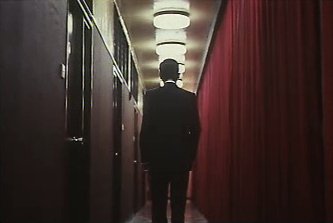 |
WKW travels back into the past, in the same period inhabited by Days Of Being Wild (and using at least one of that film’s characters), to create a sumptuous portrayal of repressed desire. Something of a departure for WKW, he loses the kinetic camerawork and solipsistic voiceovers, to be replaced by frankly enormous ambiguities in characterisation and narrative. And to find a different way of drawing in the audience’s imagination.
Tony Leung and Maggie Cheung are the two leads - they appear to be conformists, lacking the quirky wayward tendecies of other WKW characters. Yet, when they discover that their (always unseen) spouses are having an affair, they lose their grounded stability and the possibilities start to drift... WKW remains true to his modus operandi by never allowing narrative to be utterly concrete and certain, and what one takes away from this film depends heavily on personal interpretation. Classically, WKW gives us a unique insight into the heartfelt feelings of his characters, but in this film we are deliberately left to question how much we do know. Unlike earlier WKW, we’re not invited unreservedly into the consciousness of his characters - there are limits which deliberately require us to interpolate from our own emotions, and to question just what telling a story actually means. Whilst this film may lack the exhilaration of earlier WKW, it’s hard not to be drawn in by the stunning beauty of the film, and its emotional force, all matched by WKW’s desire to make us perceive beyond the confines of a simple understanding of narrative. Proving that the brilliance of WKW is not limited to a certain style, this film is already a classic.
2046 (2004)
A mammoth five years in the making, a lot of expectation rode on this film. And it doesn't really help when your principal cinematographer tells the press that 'I feel that 2046 is unnecessary, in retrospect'. Well, whether 2046 is necessary or not, it has emerged to be one of the most startlingly beautiful and mesmerising films of recent years. Yes, it is generally seen as a sequel to the leaner and more focused film that is In The Mood For Love, but it is also so much more than that.
The story follows Tony Leung's wounded philanderer, who balances the pressures of writing for a living with the burdens of his past. He finds women - many women - but how far do they connect? Is he doomed to be a prisoner of his past? Bring on Faye Wong, Gong Li, Zhang Ziyi and Carina Lau to help answer that question. Oh, and there's Japanese superstar Takuya Kimura, although the film is sorely lacking the much rumoured scene featuring him improvising with farmyard animals. Alas.
Forget the mantra that this film serves to 'mark the end of an era' in WKW's career - they said that about ITMFL and practically every film before - and ask yourself why WKW didn't make an easier film. Conversely, he made no attempt to reinvent himself either. No, 2046 is a film where WKW goes deeper into the place, the secret, the 'whispering hole' that is his art. Is it an easy film to find meaning or uplift from? No. But it is a film which fascinates and promises - the patient viewer will find it is one of WKW's richest and most touching films to date. |